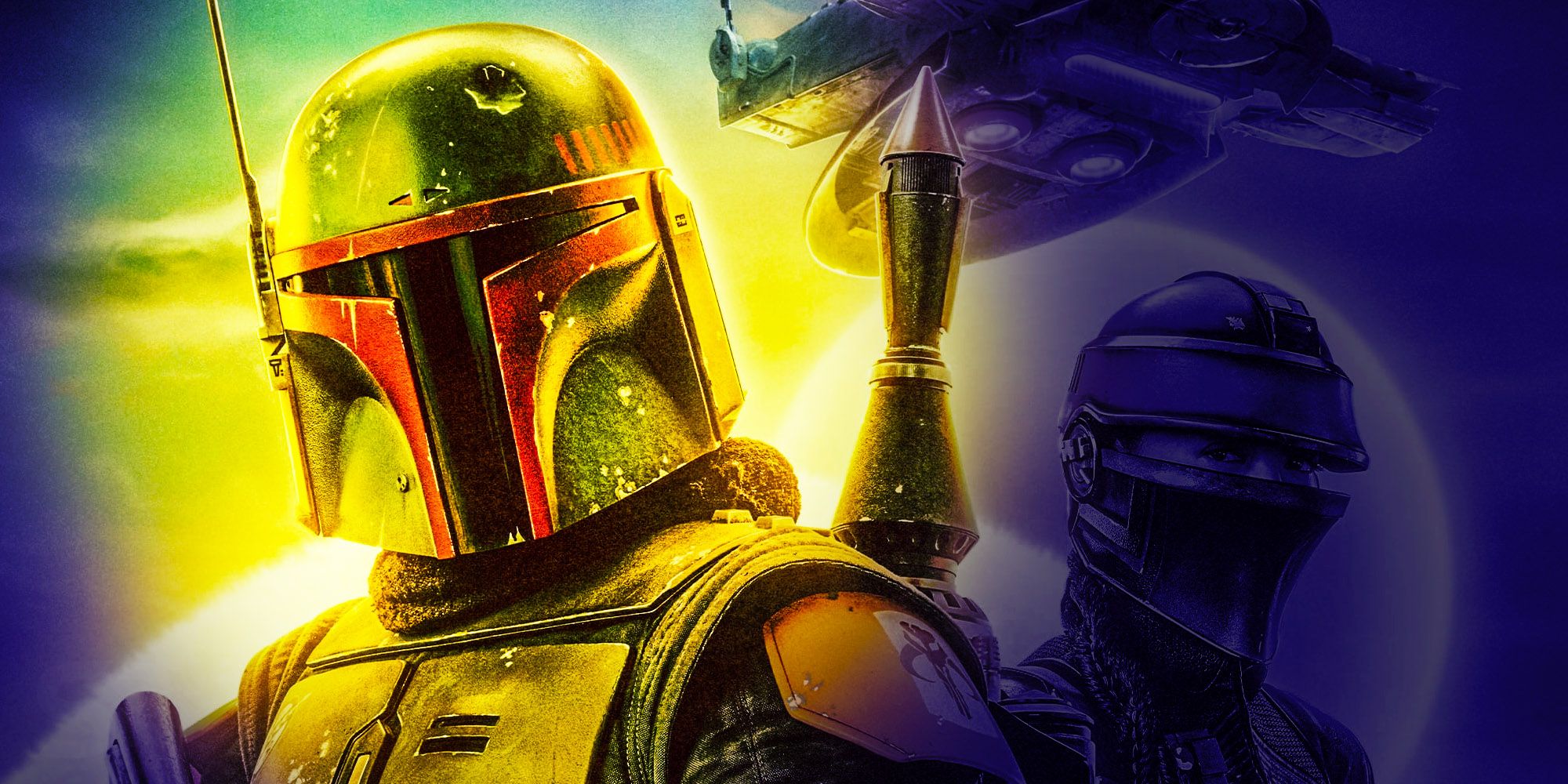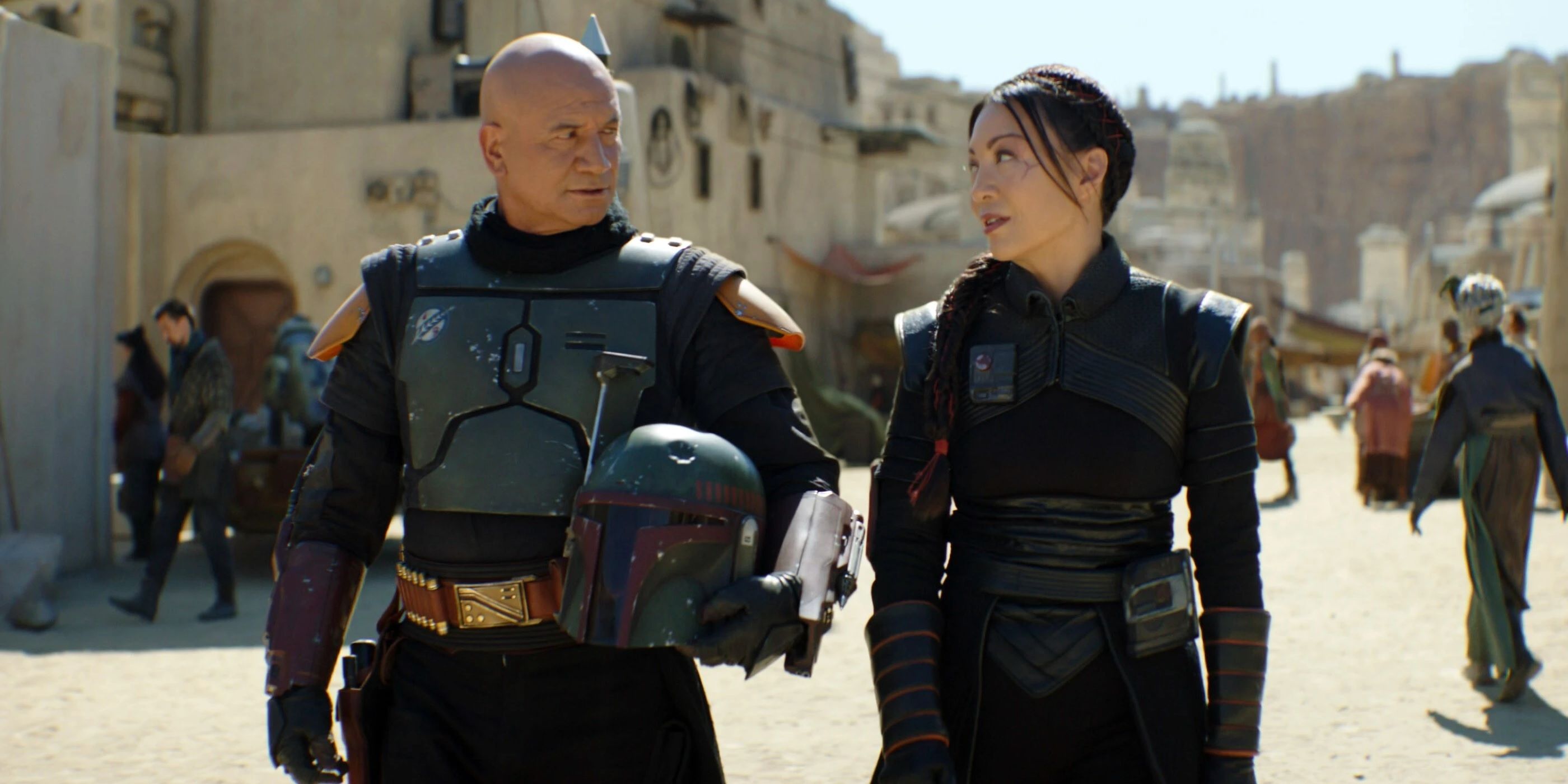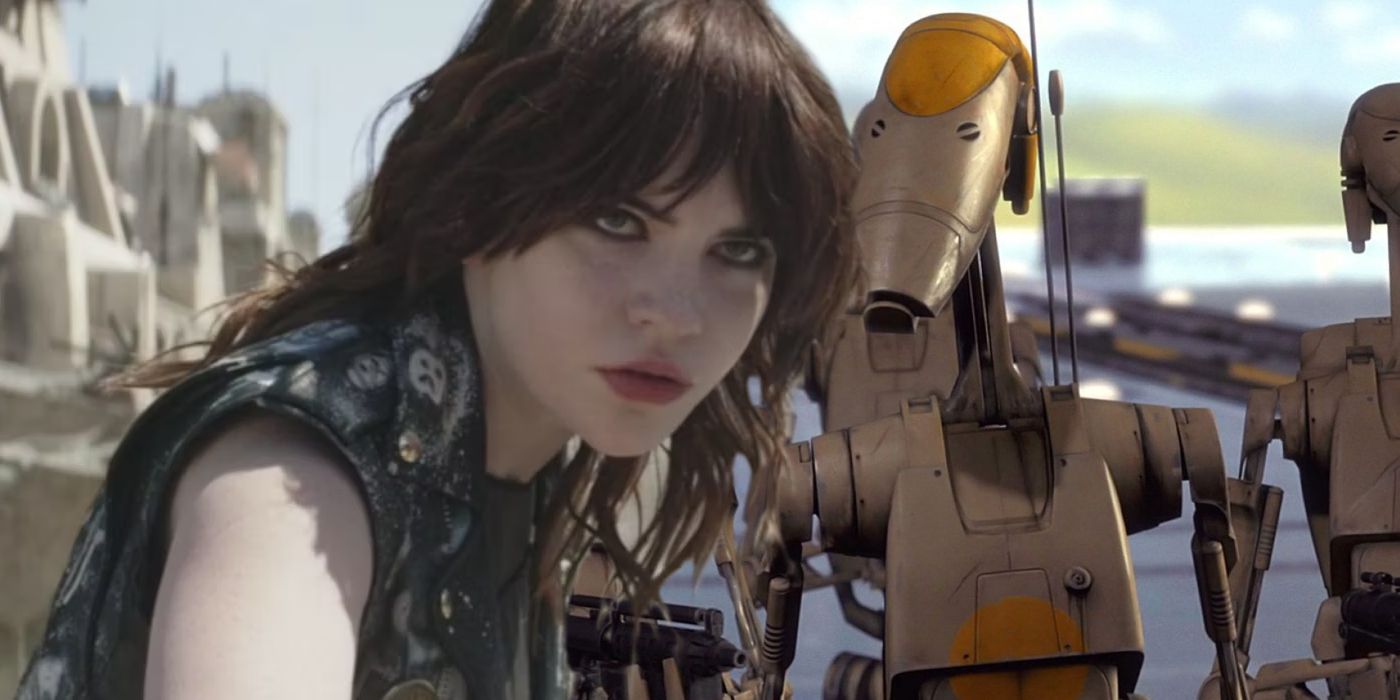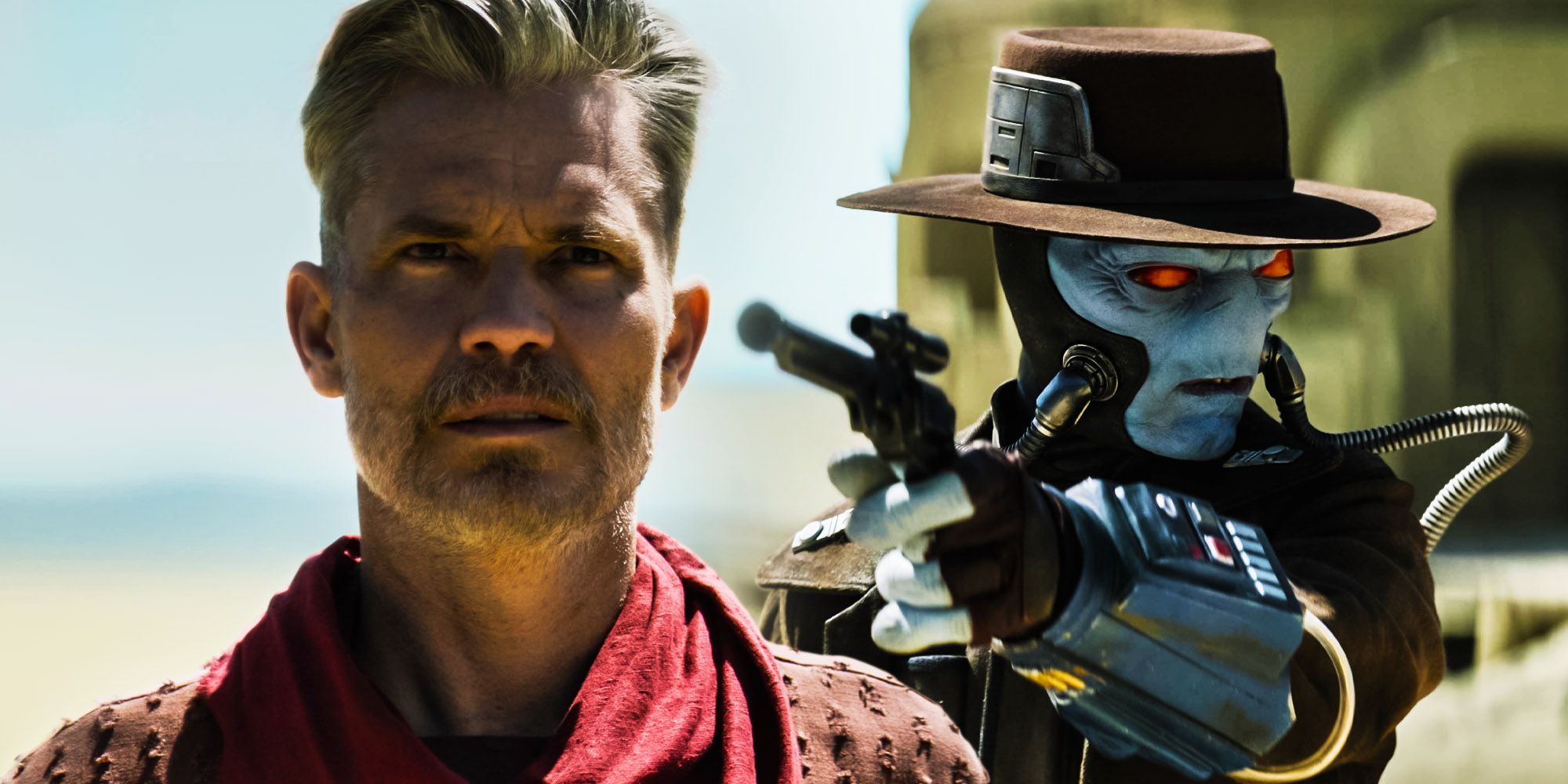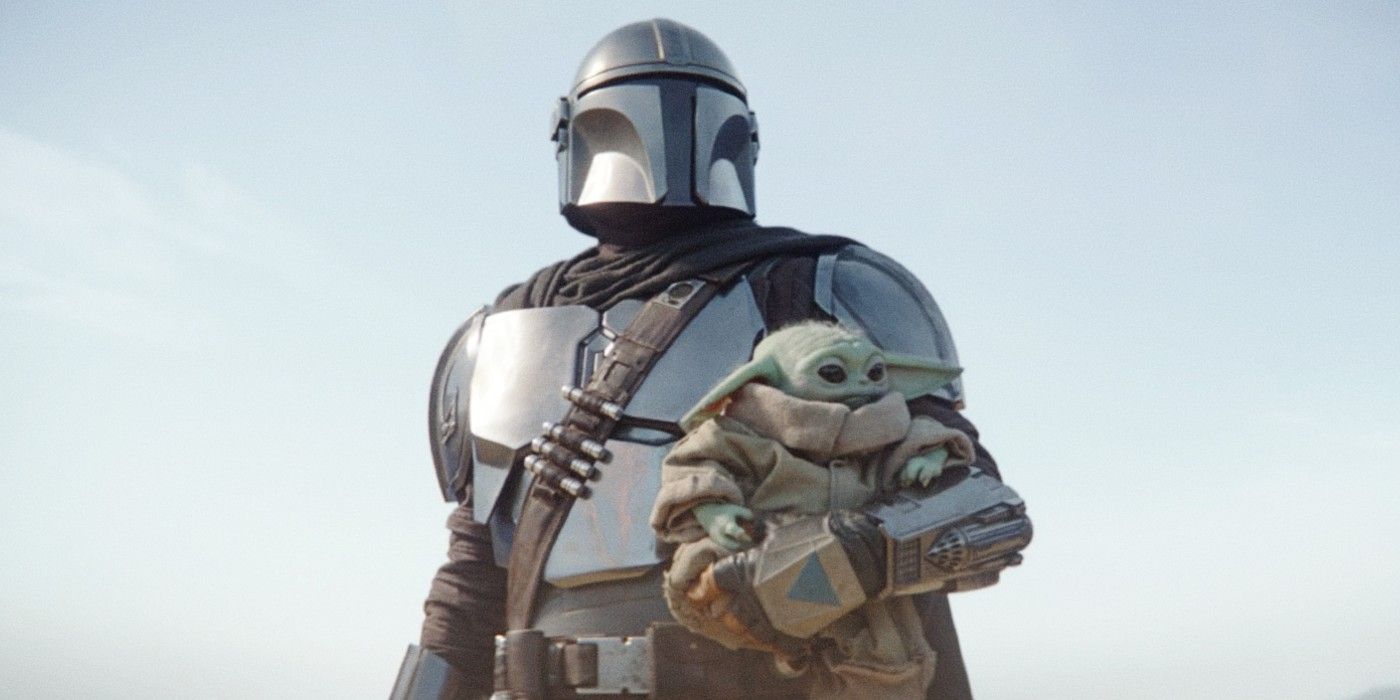The Book of Boba Fett is mired with story issues, but in its defense, it may be too soon to write off the iconic bounty hunter's new tale in the Star Wars universe. While Boba Fett's life as a bounty hunter during the reign of Darth Vader might have been the more thrilling story to cover, it's not the most on-brand choice for Disney. Turning Boba Fett, a "cold-blooded killer," into a less villainous character is a major change that deserves its time onscreen. The main objective of season 1 is Boba's quest to create a "house," or crime family, to govern his territory.
Along with Boba Fett's history with the Tuskens, season 1 covers how Boba meets the mercenary Fennec Shand, as well as introducing newcomers, the Mods and Krrsantan. Their meetings illustrate Boba's change in character. With relatively low stakes and no further demonstration of these characters' motivation to follow Boba as a crime family, The Book of Boba Fett fails to deliver beyond the townspeople changing their perspective of Boba by the end of season 1. However, these are hardened criminals who may need more time together before any emotional sense of family can be achieved, which makes their victory in the final episode of season 1 a great foundation on which to build "a house."
Was The Book of Boba Fett A Trojan Horse?
To be fair, The Book of Boba Fett's mistake may have been setting out to accomplish a great deal with only seven episodes. Having to illustrate Boba's change of heart, his current predicament as Daimyo, and also capitalize on an ambitious plan to create a crime family that could protect his territory, is a story that warrants more screen time than is allotted. This makes the Din Djarin-focused episodes more jarring, as they could have instead been used to show the growing development of the bonds between Boba, Fennec, the Mods, and Krrsantan.
However, The Book of Boba Fett focuses only partly on Boba Fett's new role as Daimyo of Mos Espa, employing flashbacks to loosely connect Boba's weak emotional motivation around the Tuskens to an emotionally unsatisfying plot. Nearly a third of season 1 also diverges from Boba Fett to focus on returning Star Wars cameos centered around the Mandalorian and Grogu. Their presence in the final episode of season 1 plays a key role in the siege, but the episodes that focus on them do not serve The Book of Boba Fett's plot as much as they do for The Mandalorian.
Despite the plot divergence and lack of character development, The Book of Boba Fett is not a Trojan horse or The Mandalorian season 2.5. It introduces the new members of Boba's crime family and their skills. Though season 1 does not fully capitalize on that purpose, The Book of Boba Fett has the potential to dramatize the life of a crime boss in the Star Wars universe. Doing this from the perspective of a crime family will be what truly sets The Book of Boba Fett apart, even if it ruins The Mandalorian best story.
Why Expanding The Focus Beyond Boba Fett Is A Good Thing
The Book of Boba Fett might be a misnomer at worst, but that may not be a bad thing. Boba is getting old. Surrounding himself with a younger, more diverse crew not only makes the show more appealing but also allows for longevity should the characters live on beyond The Book of Boba Fett. The Mods, some native to Mos Espa, could prove to be critically useful in Boba's crime family. However, if they aren't engaging with Boba in the show, then their storylines and character developments can still take shape onscreen without Boba Fett present.
Expanding the focus beyond Boba Fett, if done right, can build character and add tension that further complicates Boba Fett's crime family, as well as his role as Daimyo. This is a critical aspect of the plot that is missing in season 1. There is no answer to the question of why Boba wants to be Daimyo. Atoning for what happens to the Tuskens is the inferred motivation to start a crime family, but the two are not directly connected.
Whether both this new responsibility and his crime family truly mean anything emotionally to Boba and also his members are left undeveloped. From Boba and Fennec's perspective, that answer may never be explicitly conveyed, as they tend to keep their emotions to themselves. The Mods, however, are more vocal in expressing their feelings or concerns and should be written to say or do what Boba and Fennec are reluctant to.
Why The Book of Boba Fett Is The Weakest Star Wars Show So Far
Among The Book of Boba Fett's biggest failures include poor character development, lack of plot focus, and lack of explicit or meaningful motivation to care about the fate of the characters. Cad Bane's surprise and compelling connection to Boba Fett, which is revealed late in the finale's showdown fight, does not make up for the show's other pitfalls. If the two meet early in the season, reveal their connection and demonstrate the fact that Cad can outdraw an emotional Boba, then the final fight would be more suspenseful. Furthermore, season 1 also failed to deliver on its core theme, family.
The Mods and Krrsantan follow through on their orders as Boba's underlings, but that's part of the problem. Boba Fett's authority is rarely challenged and when it is, it's resolved either too quickly or too amicably. Even if Boba is not as feared as Star Wars' Jabba the Hutt and is not the "cold-blood killer" he once was, Cad Bane proved that side of him is still in there. That internal struggle of Boba trying not to be the bounty hunter he used to be and move forward as a merciful Daimyo is practically nonexistent.
How Book Of Boba Fett Can Be Star Wars' Best Series
As Daimyo, Boba's lack of empathy and emotional attachment should be his worst asset because he hopes to be respected by ruling without fear in The Book of Boba Fett. At the same time, keeping his emotions at bay makes him a better marksman. Balancing this dilemma should be dramatized to convey the difficult position Boba is in as Daimyo. In the end, emotionless loyalty is duty, not family. So far, duty is what Boba's crime family has displayed, which makes the real problem with The Book of Boba Fett less emotionally compelling. For a bounty hunter who grew up an orphan, family in its most emotional sense may be what Boba Fett truly seeks in his old age.
The Mandalorian and Grogu's connection could show Boba Fett the importance of emotional attachment and family by choice. For Boba to learn this lesson, however, The Book of Boba Fett will need to make time for him to bond with his crime family and see Mos Espa as more than simply a territory to govern. He should see it as a home to protect out of love, not out of duty, as The Book of Boba Fett's Cobb Vanth does for Freetown. Turning emotionless bounty hunters into caring parental figures for the Mods is a potentially compelling narrative and could give the Star Wars universe its best family drama series.

